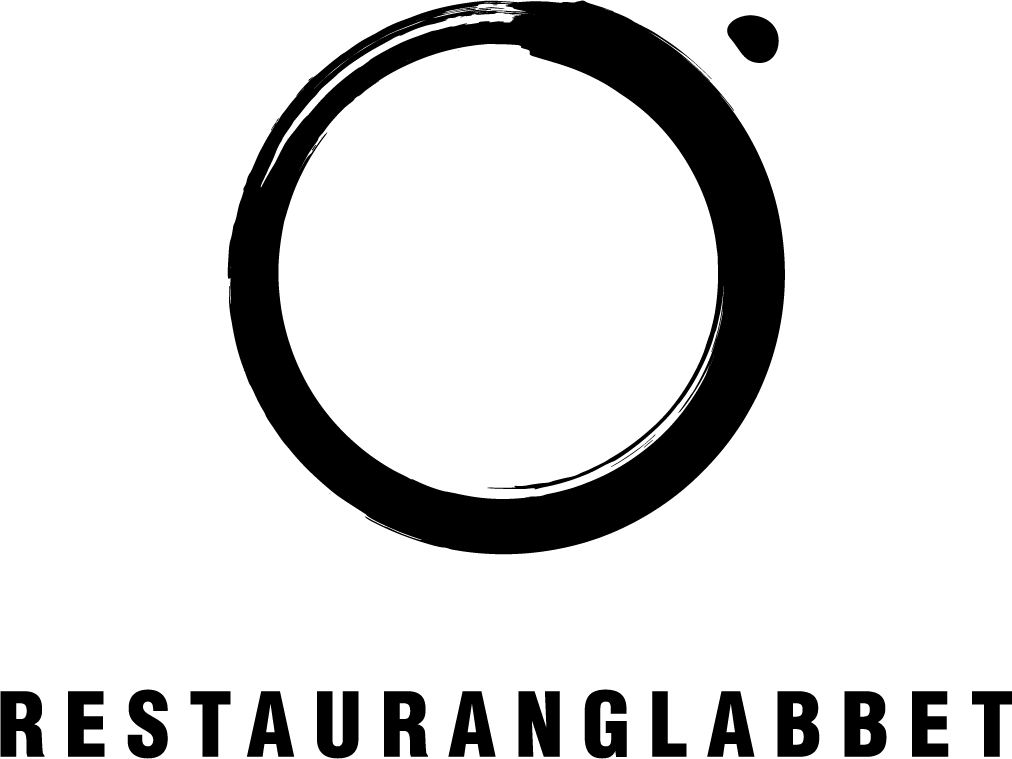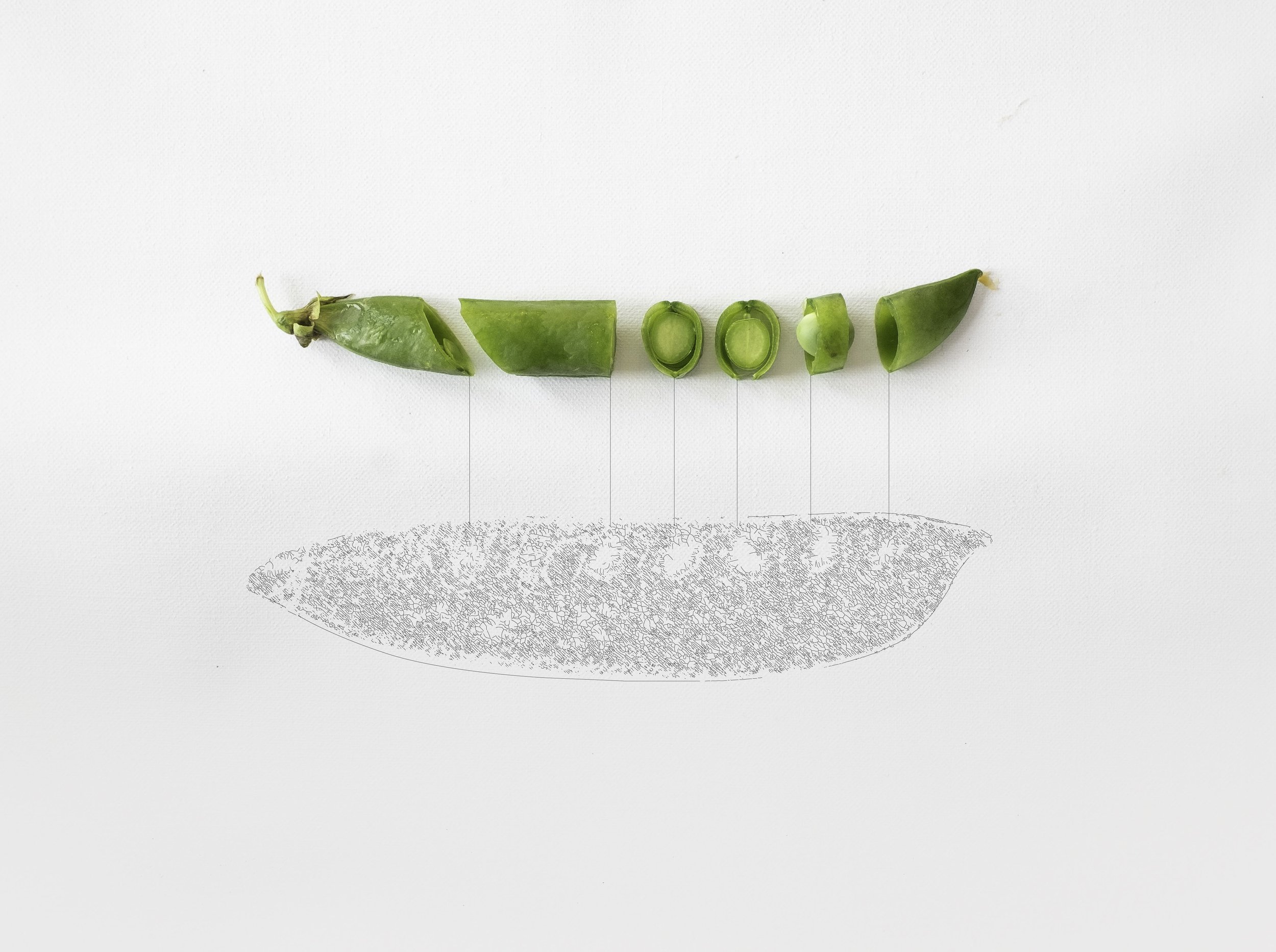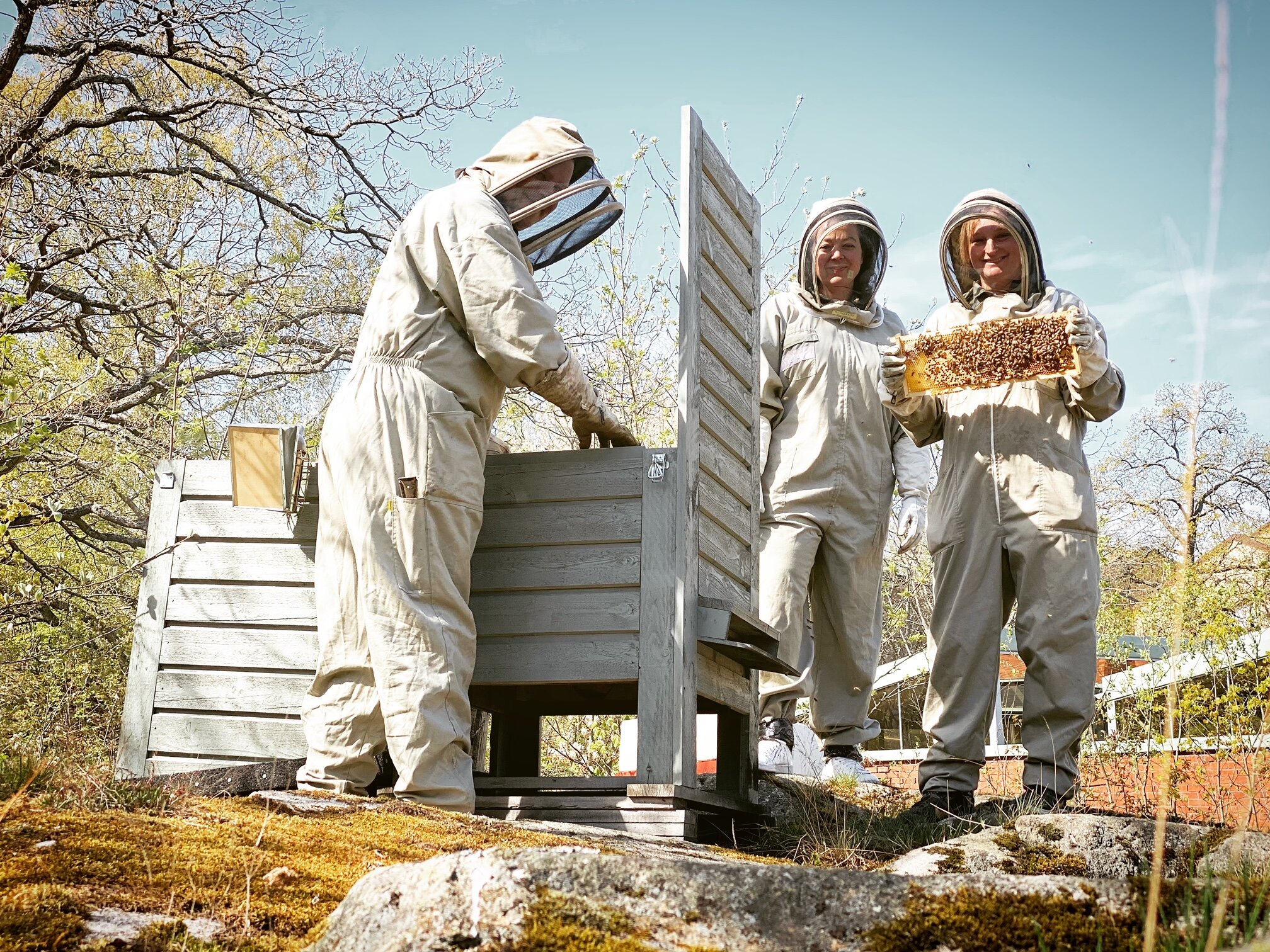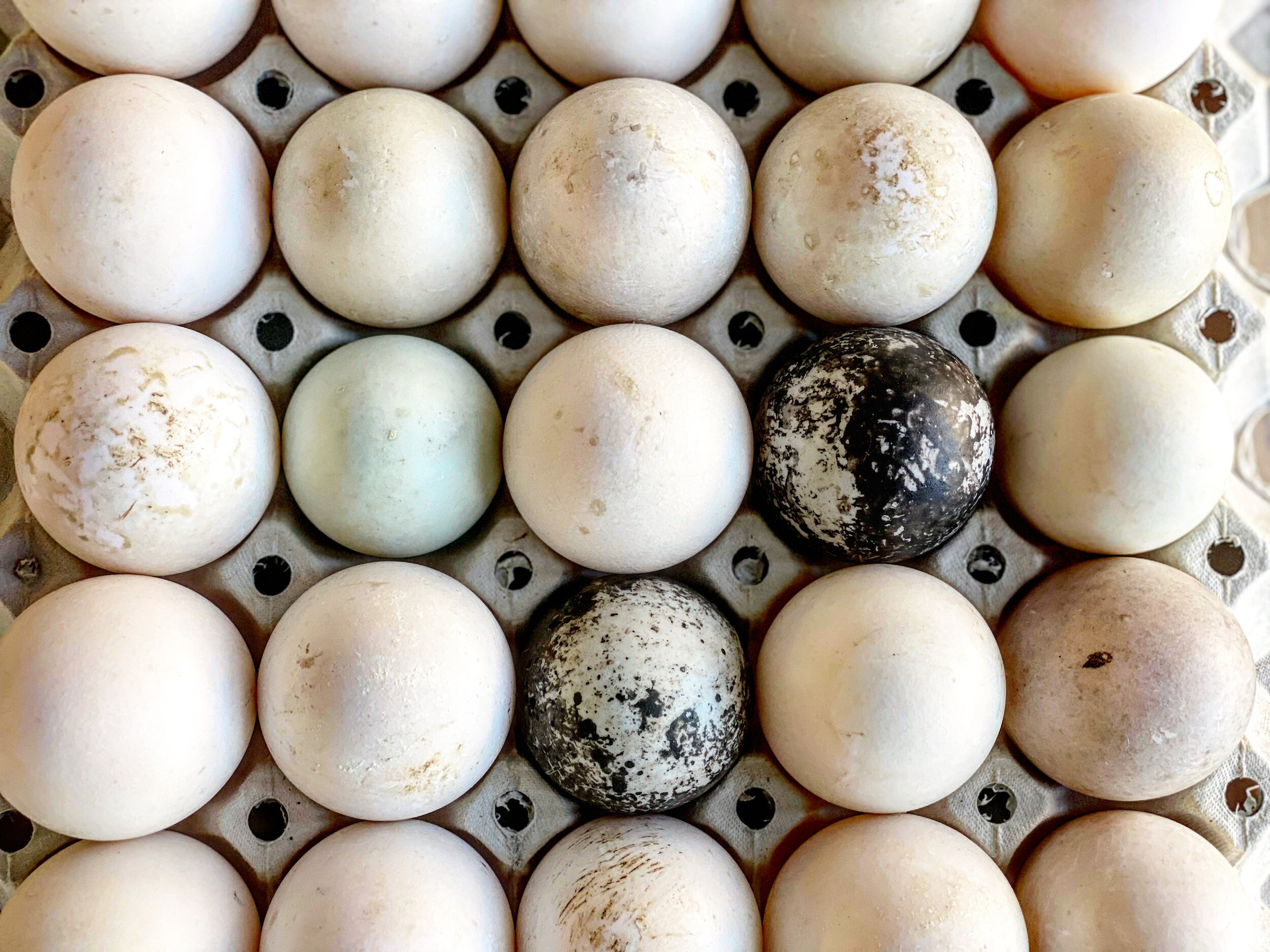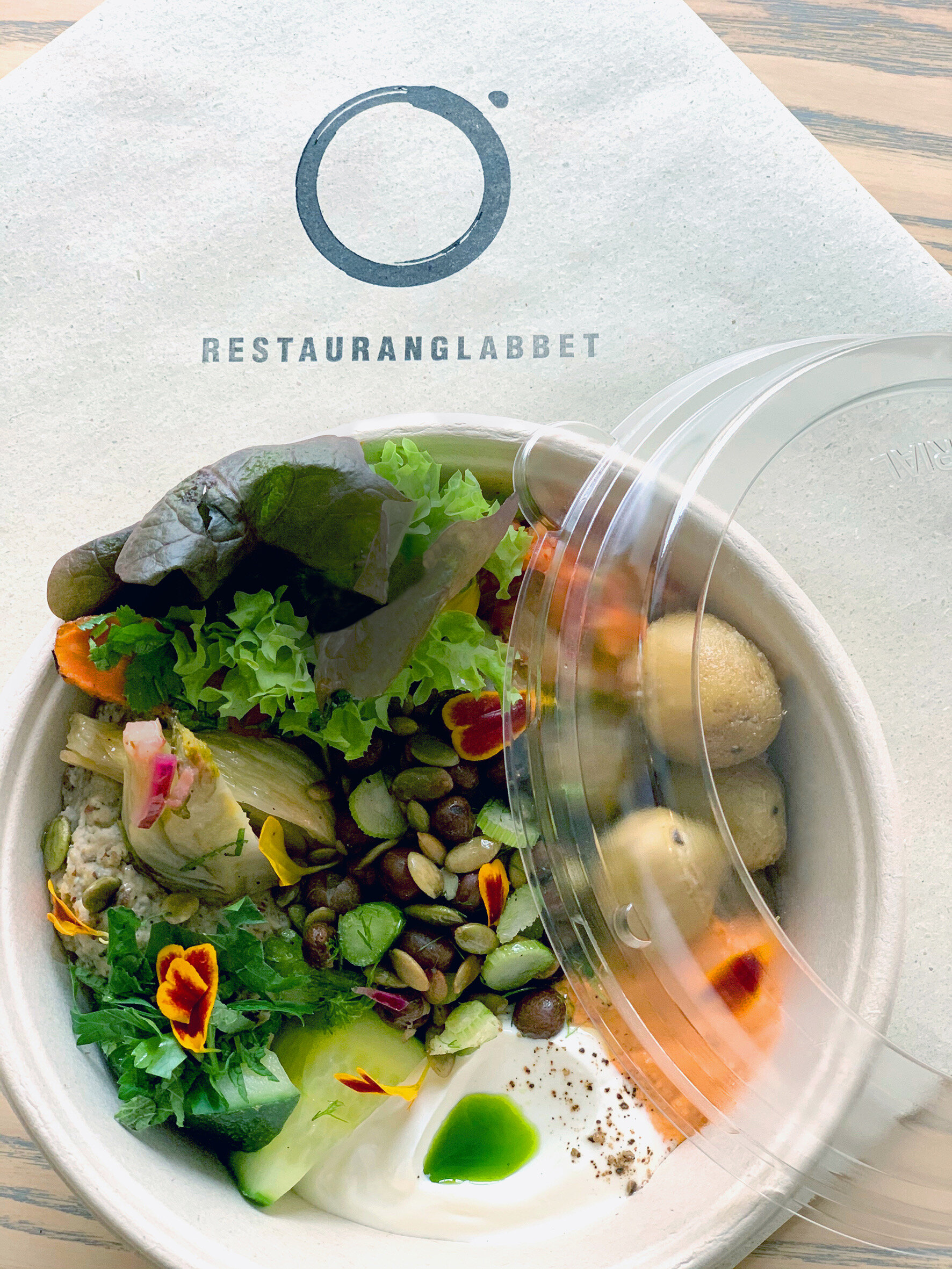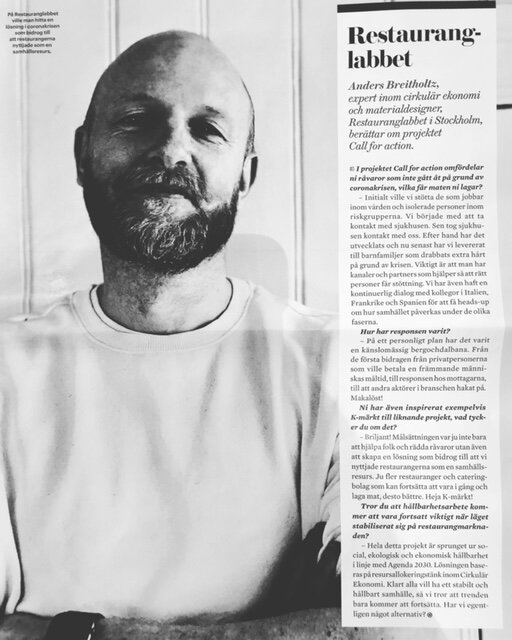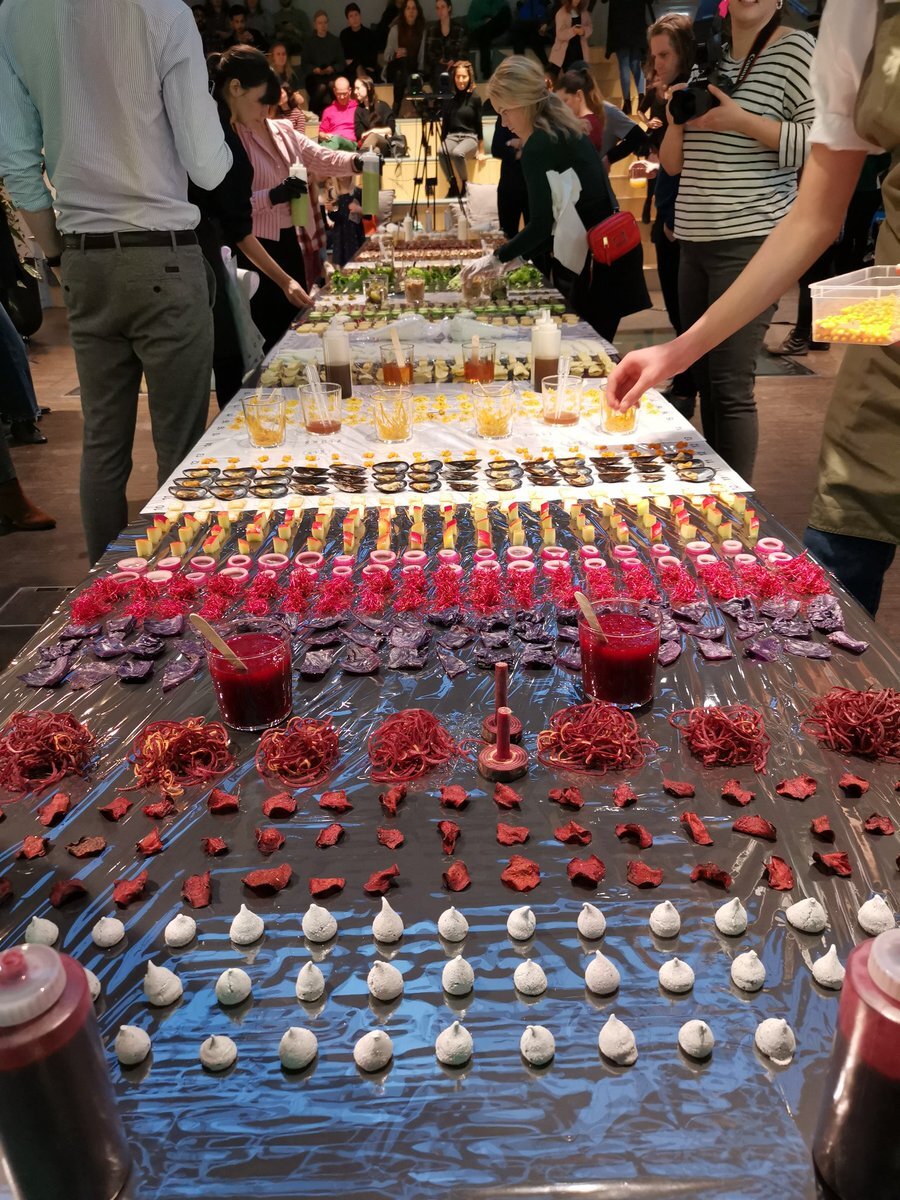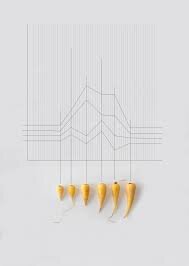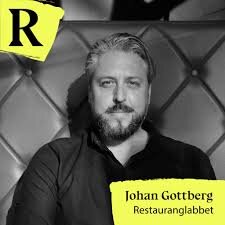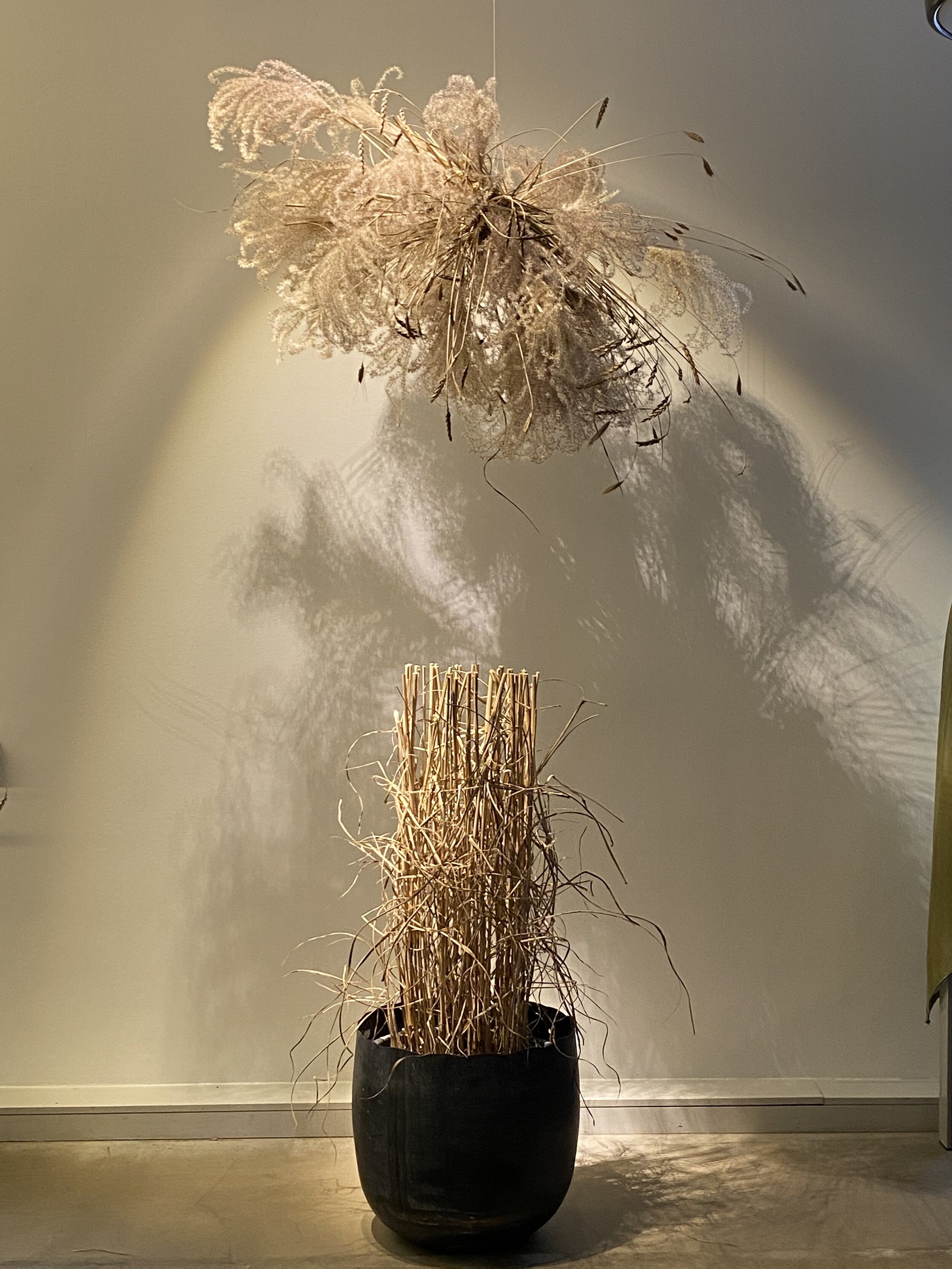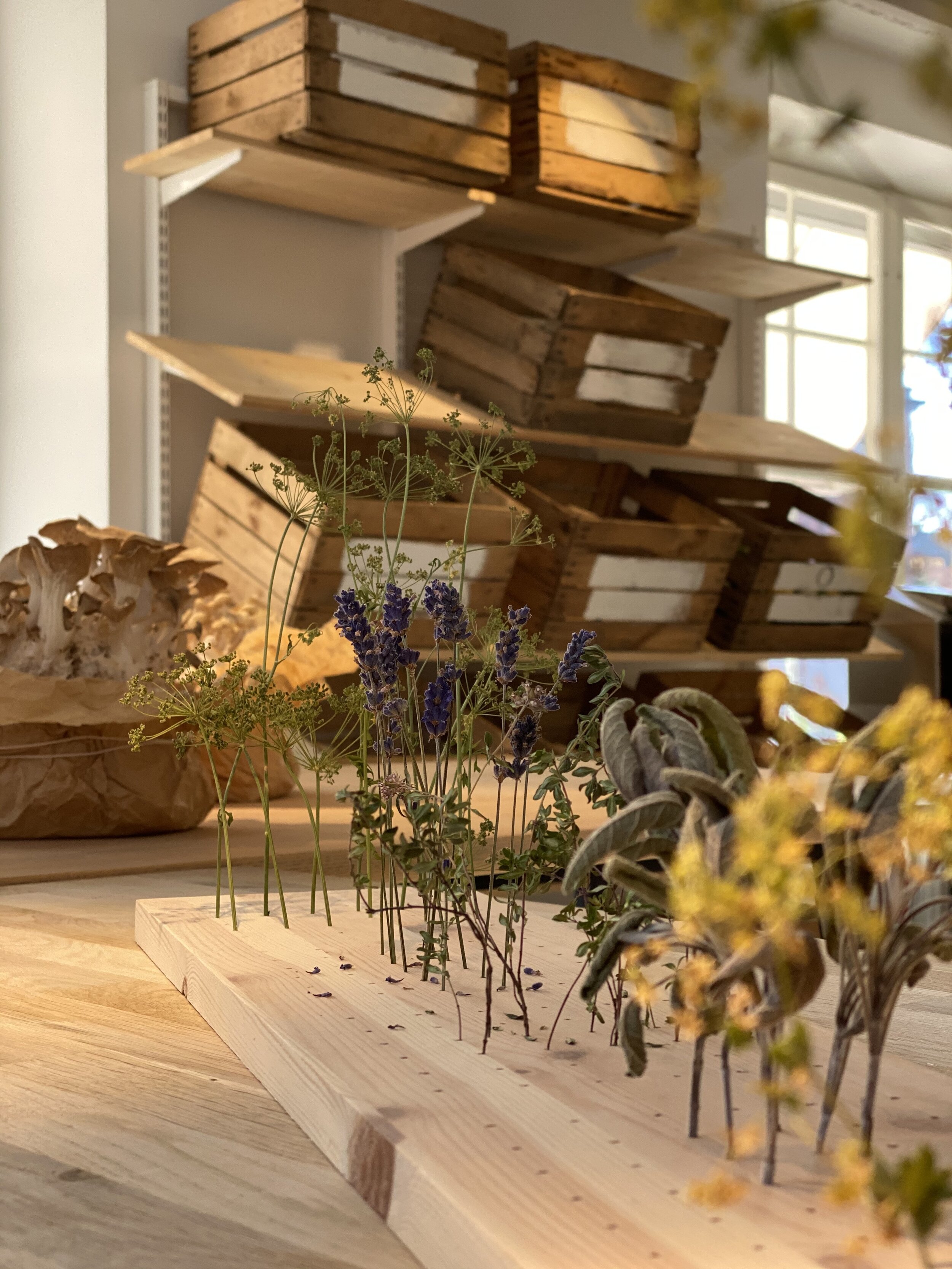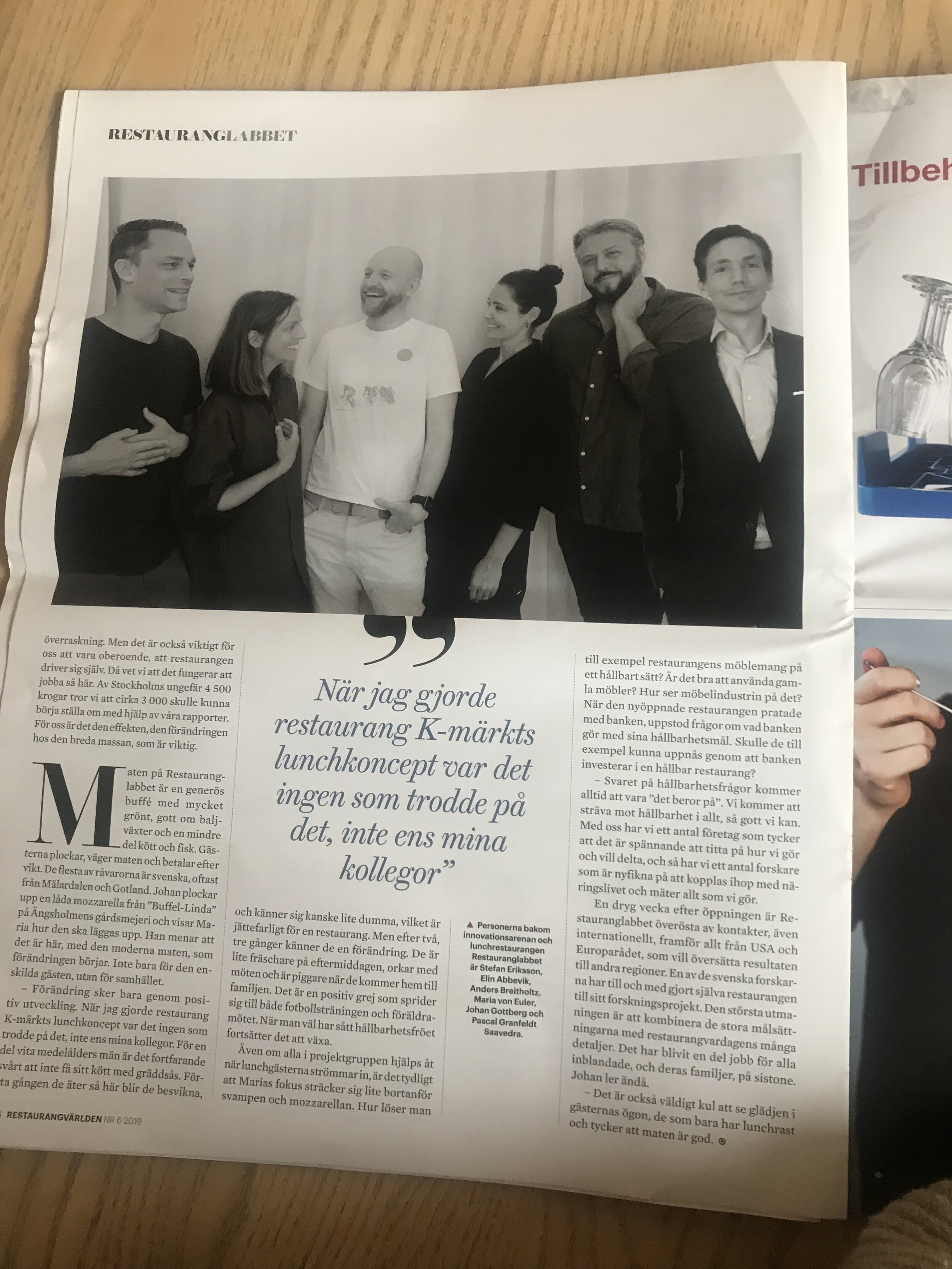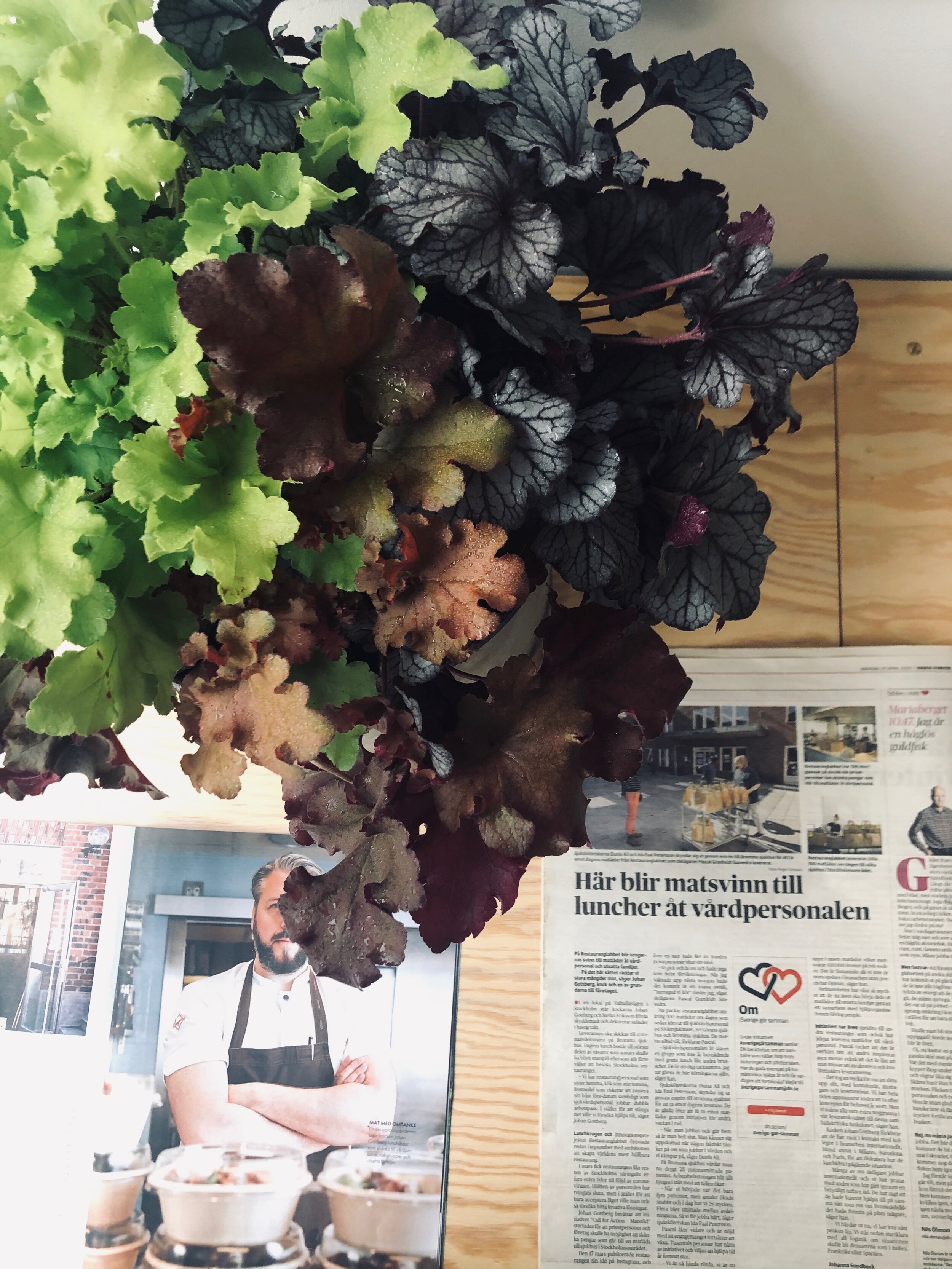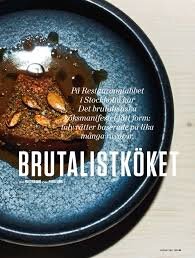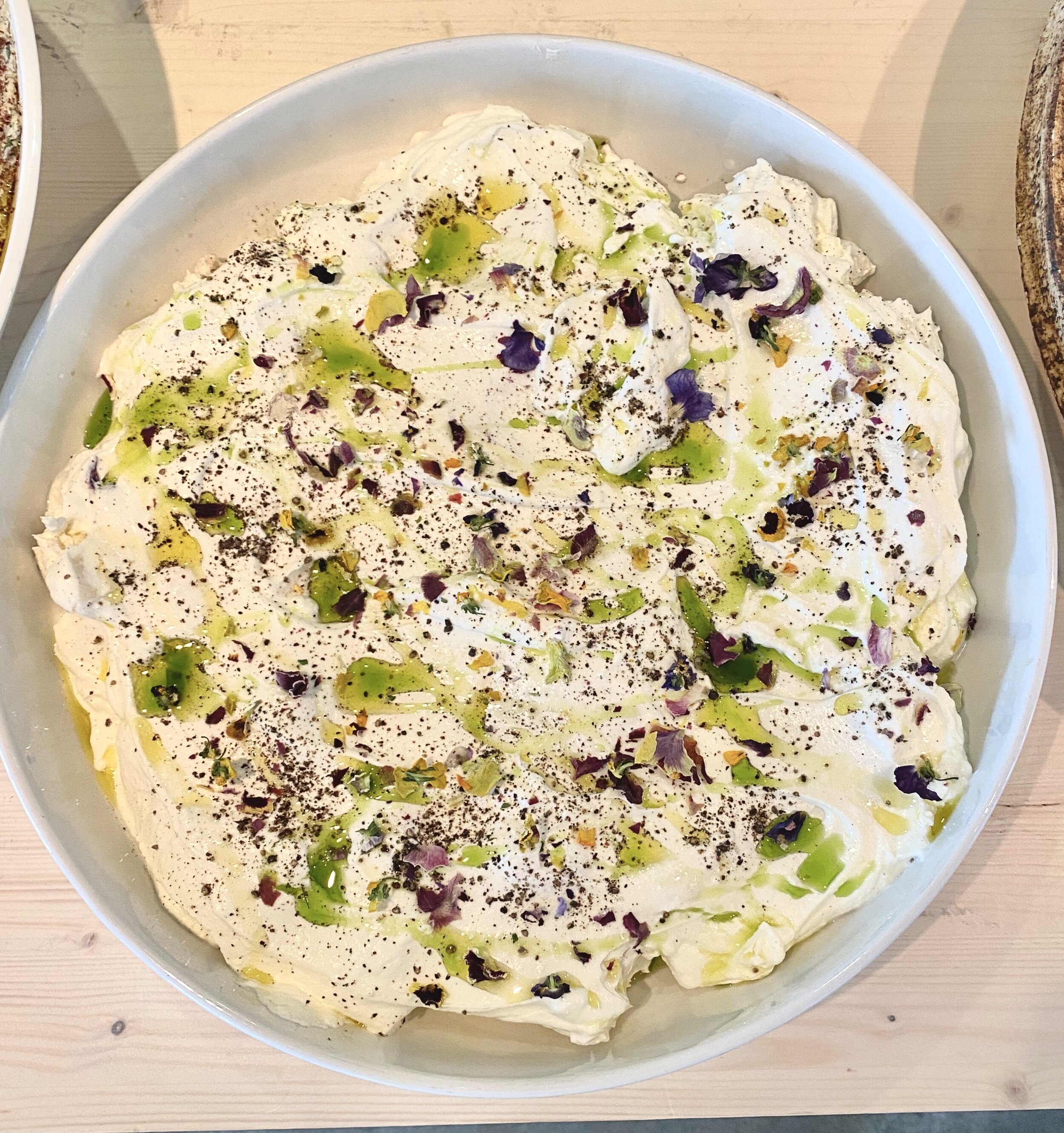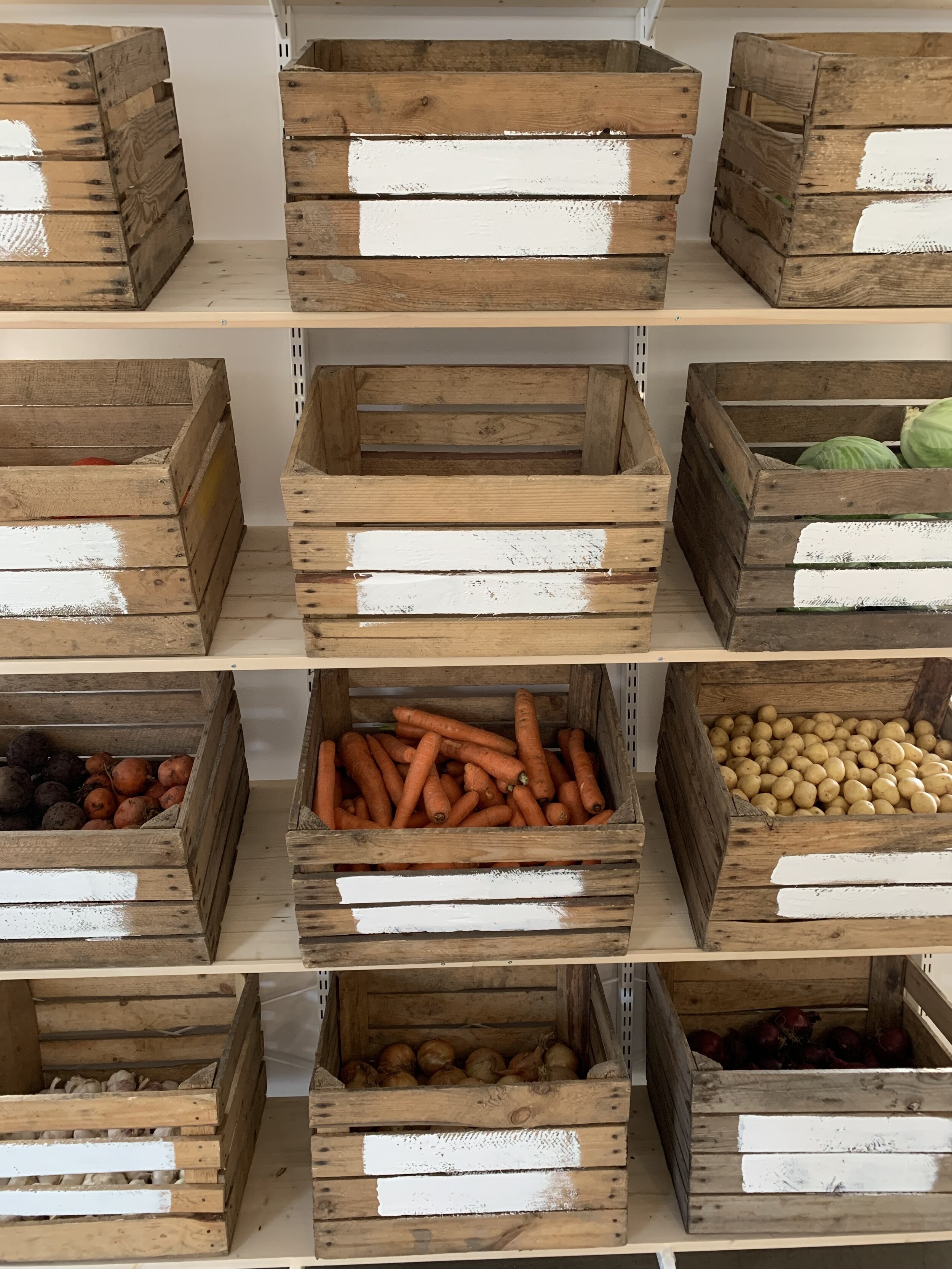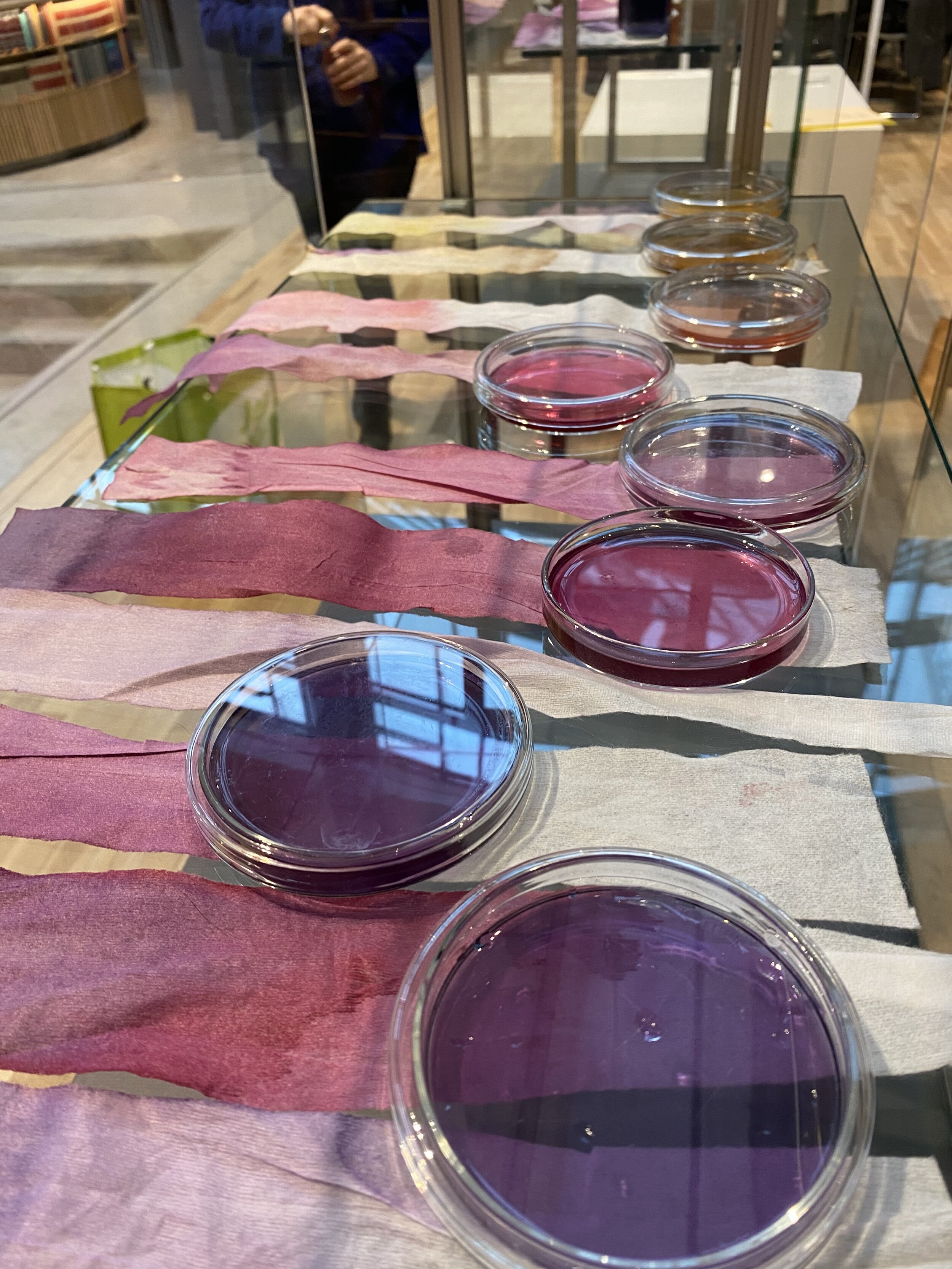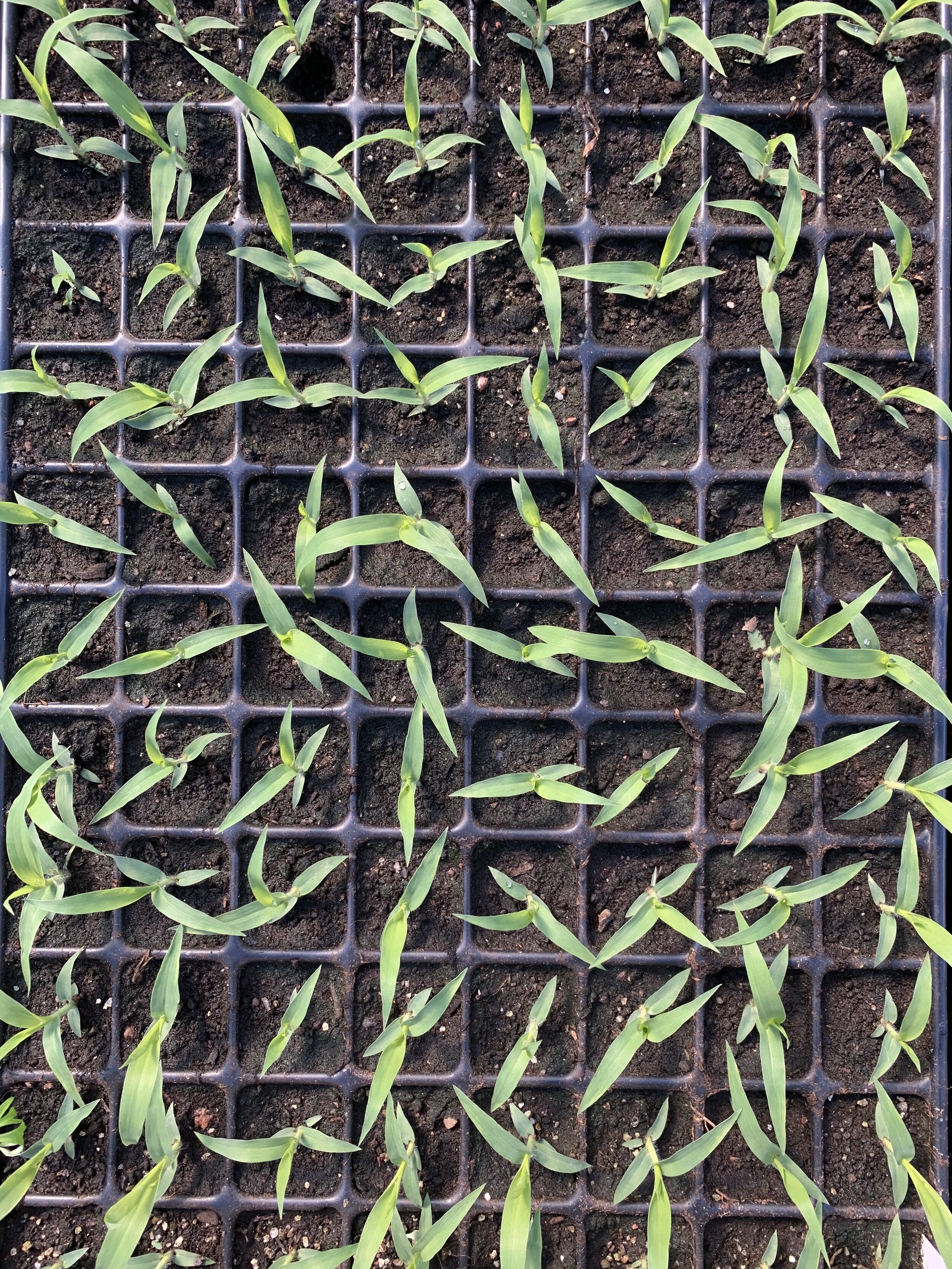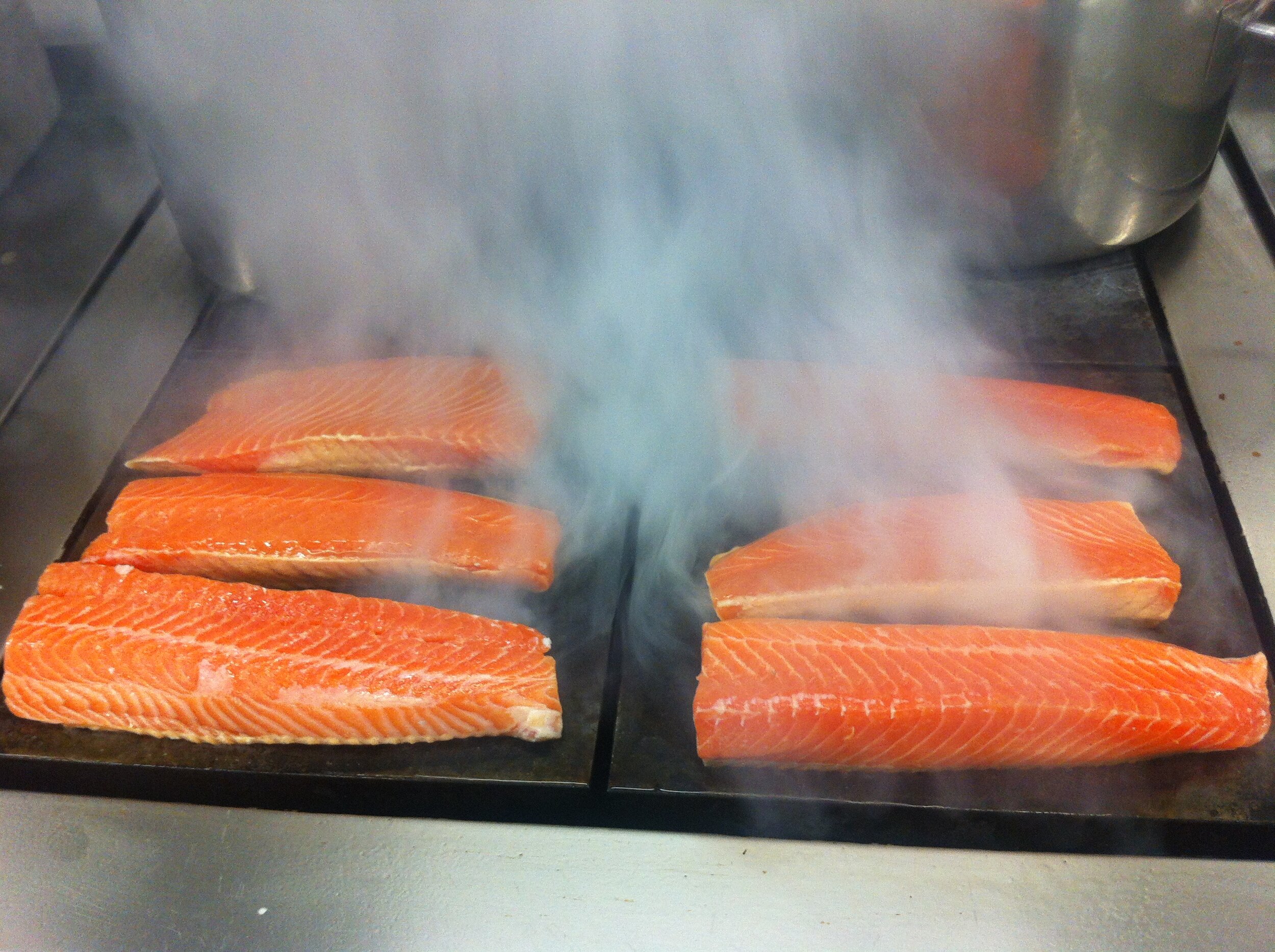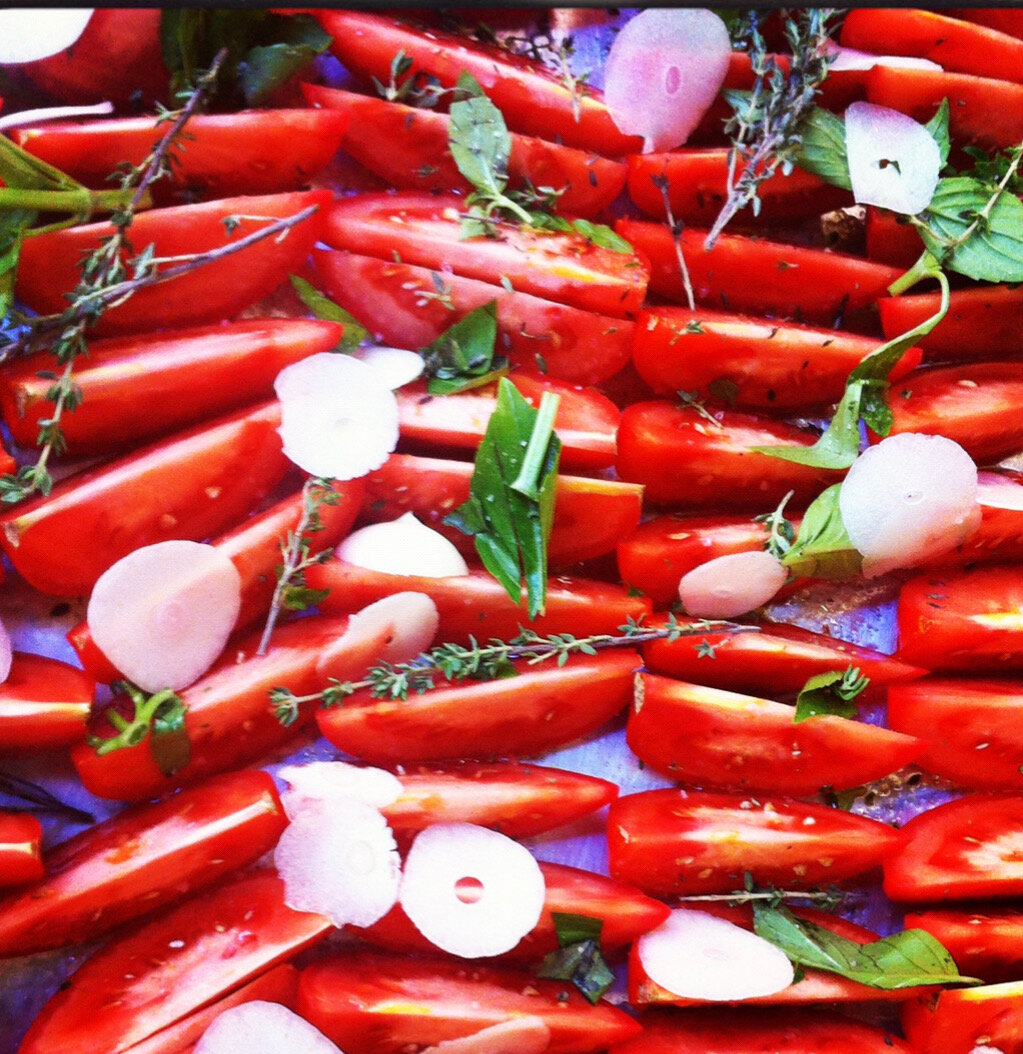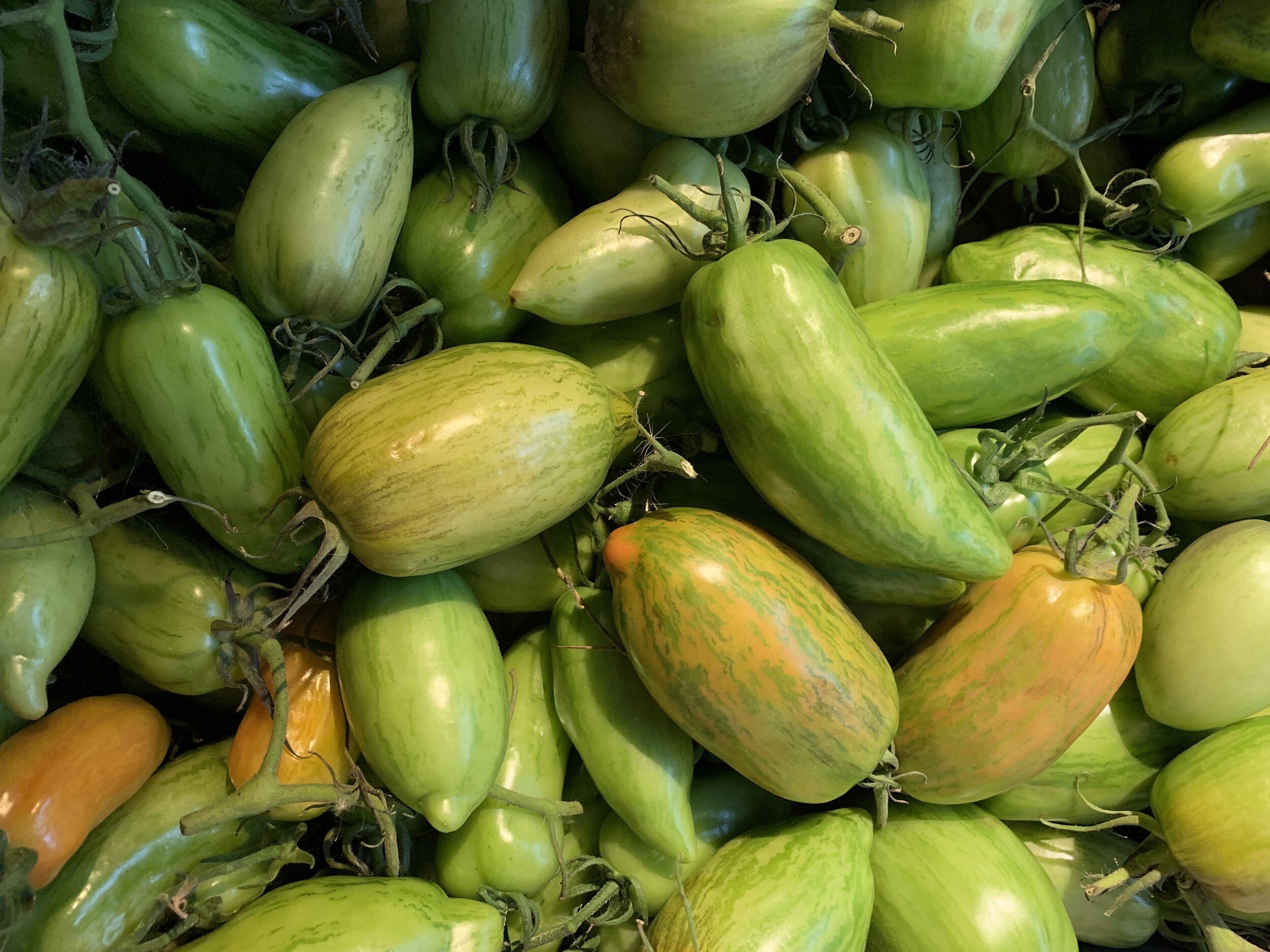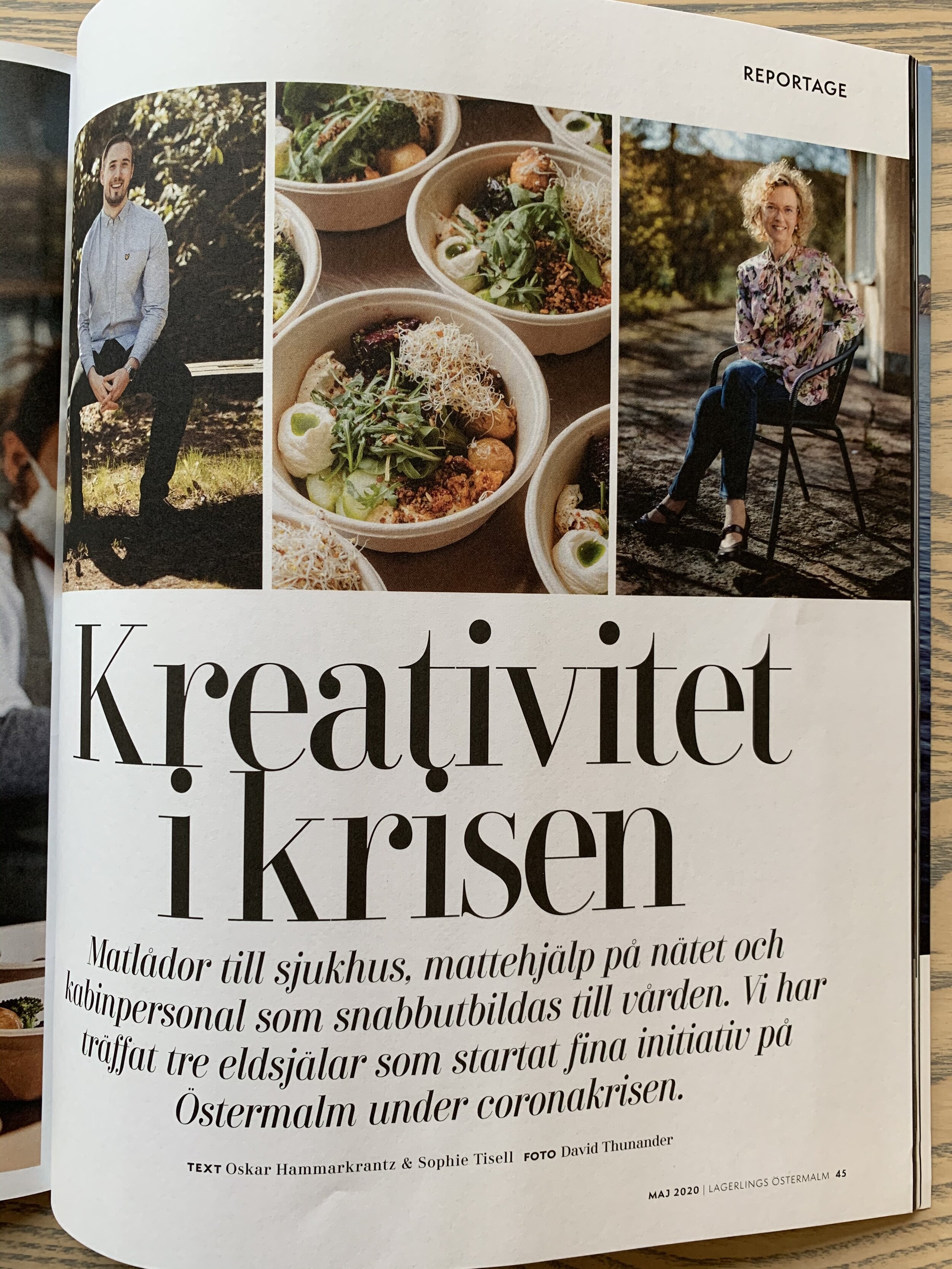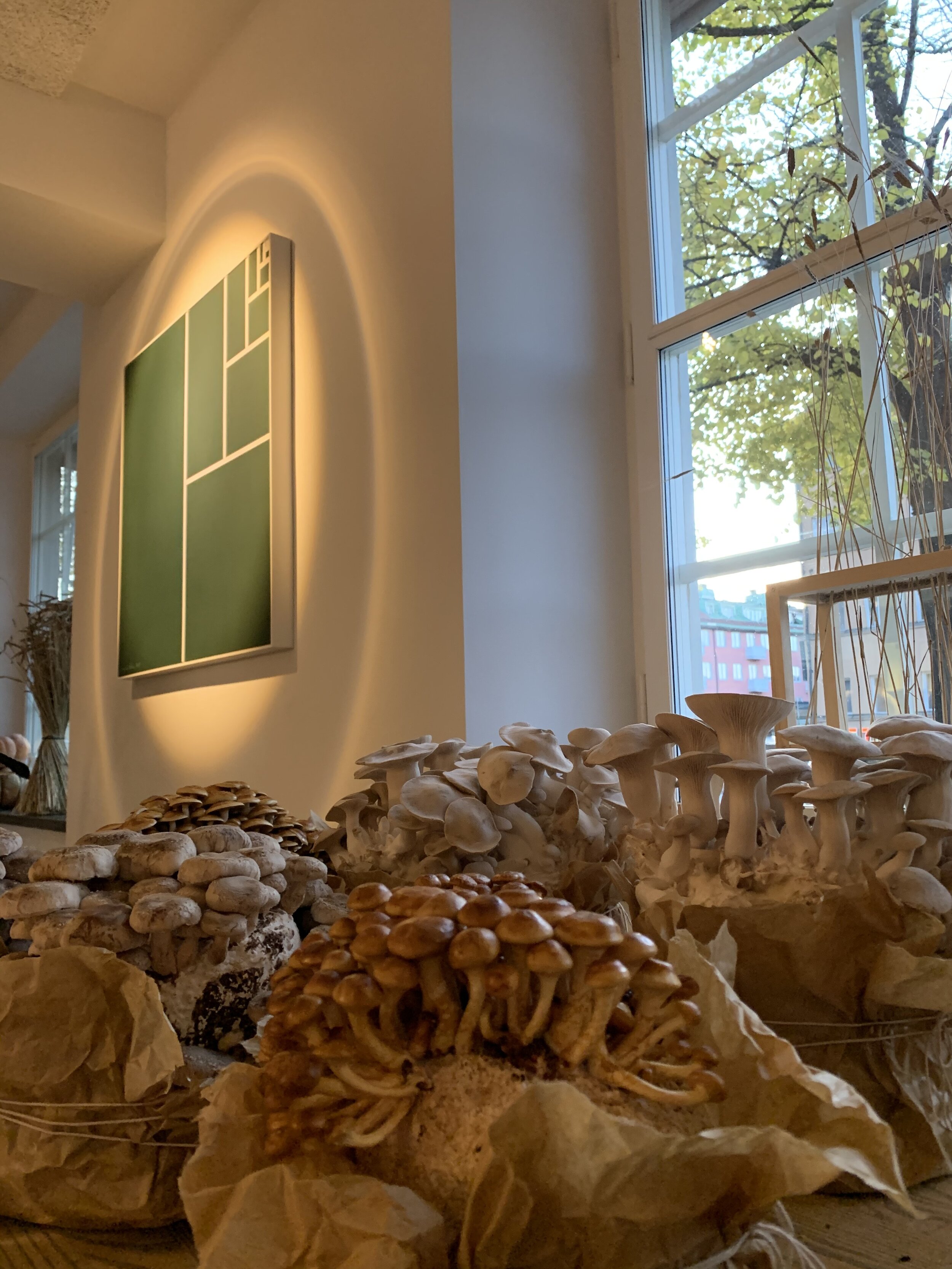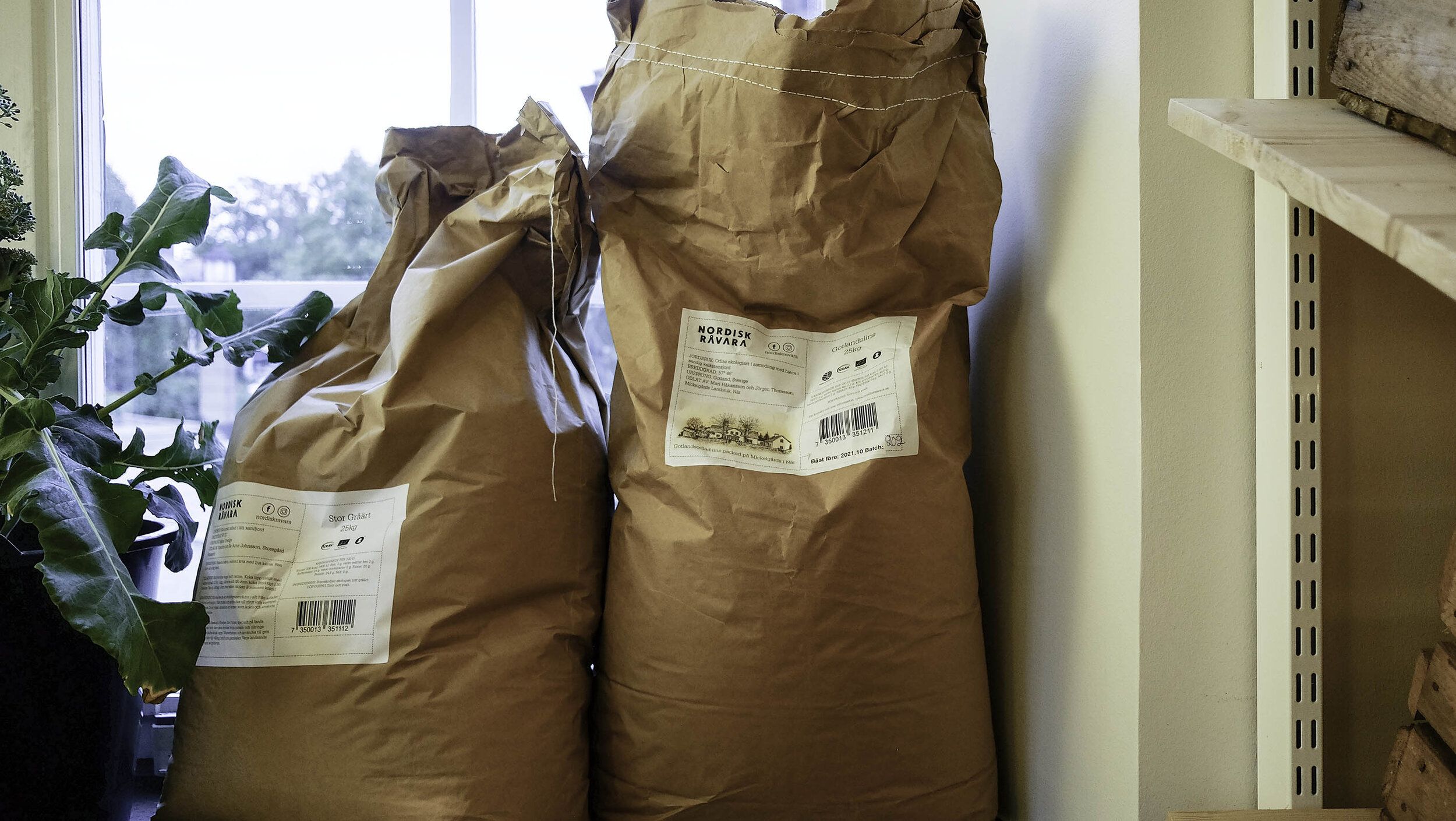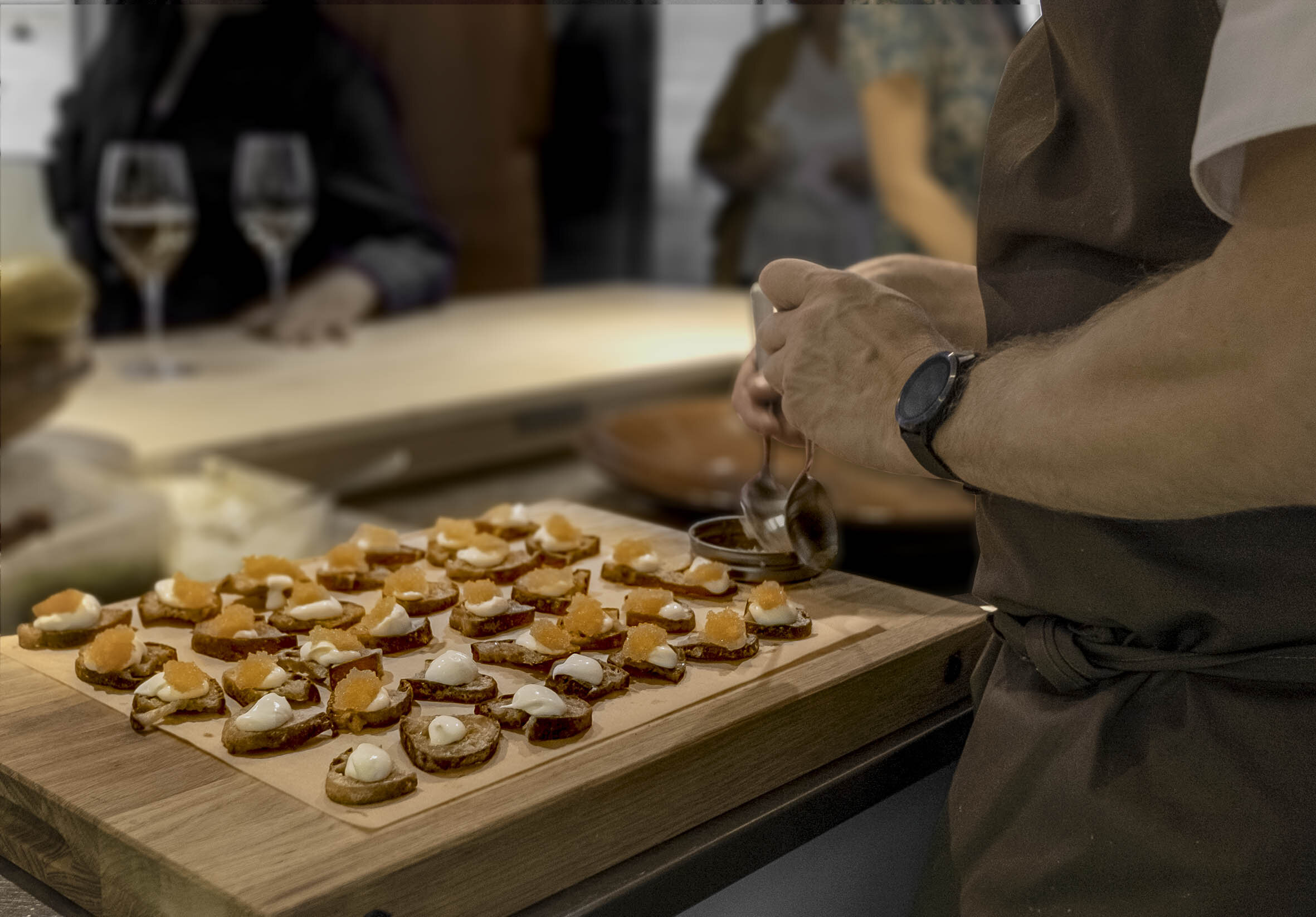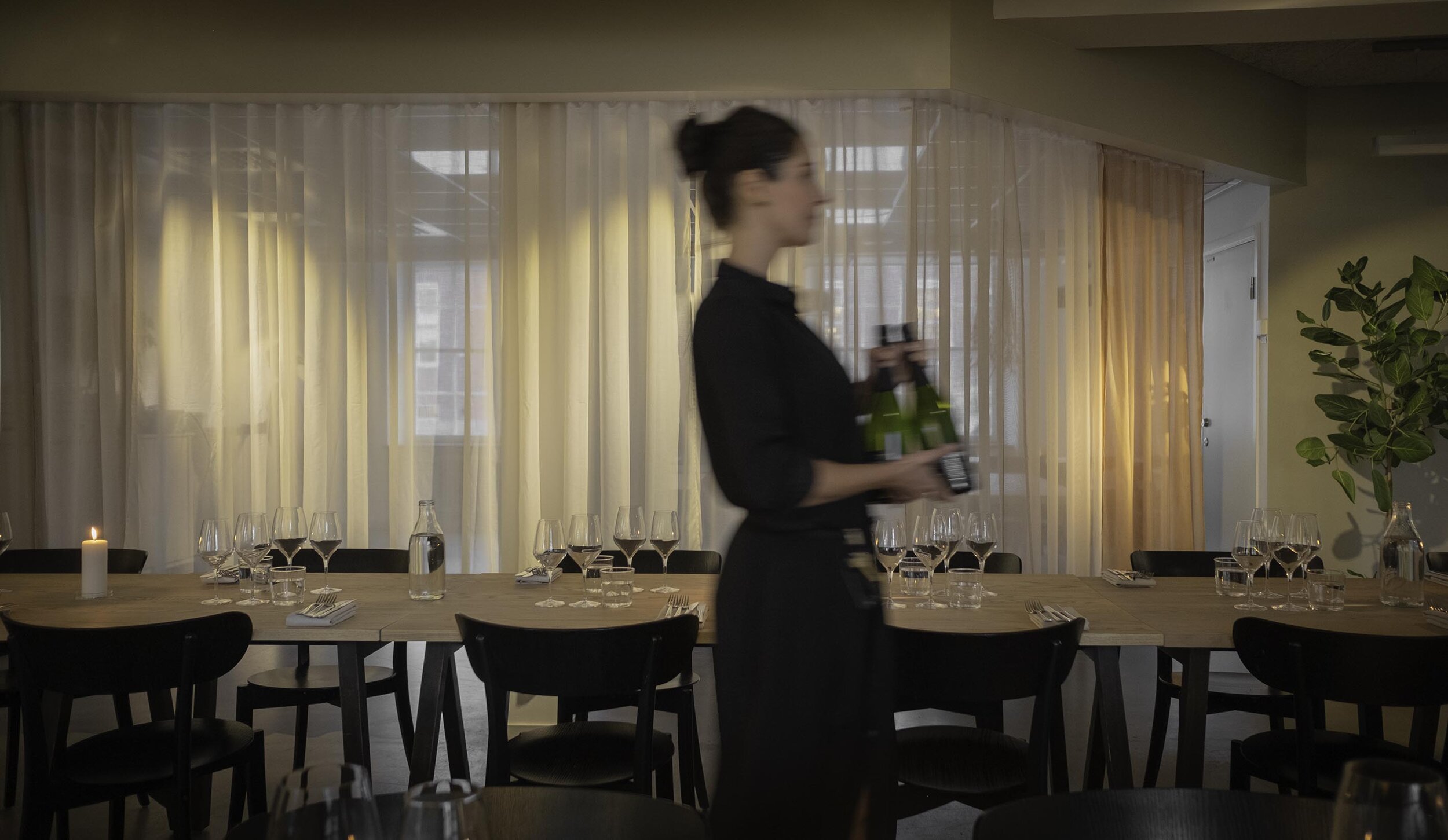THE RESTAURANT LAB, AN INNOVATION ARENA ACHIEVING AGENDA 2030 & BEYOND
The Restaurant Lab is a live-in-lab for accelerated innovation within sustainable food and food industry. Through circular design-driven processes and full-scale test beds, we crossbreed academia and business towards Agenda 2030.
The Restaurant Lab began as a conversation and workshop in 2018 between designers and chefs about the fact that it should be possible to reach Paris Accord (COP21) and the UN´s Sustainability Agenda 2030 ahead of time. Why wait? Why not aim for 2020!
This idea since then has become a methodology to reduce food waste averaging 30% down to below 2%, reducering CO2 by 3/4, including both meat and fish, whilst showcasing that ecological sustainability goes hand in hand with economic sustainability.
Some of our projects that prove theory in practice are for example our two-year test restau- rant at the campus of the Royal Institute of Technology, KTH, with hundreds of daily guests paying to eat and experience the results of the test-beds. Reaching and even surpassingWWF’s ambitious One Planet Plate in less than two months. Or our Call for Action project,launched in the very beginning of the pandemic and as early as 7th of March 2020. Through design thinking and circular economy we activated our colleagues in the restaurant industry to support healthcare workers and families with strained finances with free and nutrious meals. During a period of 6 months about 500,000 meals were produced, saving both food risking going to waste and maintaining jobs within the restaurant industry.
The conversation continues, as we have proven that our methodology to reach Agenda 2030 works, then why wait any longer?
CHALLENGE
The challenge is clear towards Agenda 2030:
- The members within UN, have set a goal of no more than 2° increase of the earth ́s temperature. - Within EU, 93% of Europeans see climate change as a serious problem and...
- 79% agree that taking action on climate change will lead to innovation.
- The food industry accounts for the second largest resource outtake after infrastructure.
- In every step along the value chain there are huge losses.
Within the EU, 20% of food productionis wasted whilst 36 million of the population are unable to have quality meal every second day.
- Resource outtake and waste has a direct link to C02 emissions and bio diversity loss.
- Bio diversity is also effected negatively by land use and agriculture’s mono cultures.
COLLABORATING FOR SYSTEM SOLUTIONS
No matter how we look att sustainability or circular economy, one thing is very apparent: we are part of a system, resources travel in systems. From information to data, from supply chains to combining meals on a menue, sorting cutlery after dish washing, all have and needa system approach. The more we understand, the more it’s clear that this effects nearly everydimension. Innovation is the ability to, on one side understand and map systems, on the other hand, combine and super position key parameters in novel ways. Without clear and tangible targets its hard for teams to align their efforts. Tangible targets are based on clear and unambiguous communication. This is where waste is created. Waste is a design flaw. By connecting the right dots and getting the right people to meet we can together make a change: a social, ecological, economic and aesthetic change. In other words - collaboration, even though its easy to say but hard to do in practise, is what we need. The founders of The Restaurant Lab have the mutual ambition to act as a catalyst showing that transdisciplinary design methodology and collaboration, has high potential if we want to reach Agenda 2030.
INNOVATION ARENA
Our ability to solve problems and challenges depends on our ability to utilise our knowledge and creativity. Several large and well known companies have built large so called Innovation Labs or Innovation Arenas to:
1) challenge their own ability to innovate
2) crossbreed people and knowledge
3) attract and collaborate with the right experts
4) explore important issues alongside line production 5) position and strengthen brand values
The Restaurant Lab is the only independant innovation arena within the food industry, investi- gating how to reach Agenda 2030 within our short time left.
PROVING HOW IT CAN BE DONE!
Since The Restaurant Lab is an innovation arena that examines how the restaurant industry can achieve Agenda 2030, we needed to be both theoretical and practical to be able to answer the question how. On September 3rd, 2019, we therefore opened a restaurant at KTH, Royal Institute of Technology in Stockholm, Sweden, an unambiguous link between business and academia. Here we could measure, prototype and serve fantastic food!
Already after 2 months, we managed to both fall below One Planet Plate's ambitious CO2 targets AND make a profit. Before the pandemic hit, we were also able to measure a loss from our guests' plates of as low as 1.9% compared to the average of 30% in the industry.
When Corona struck, we created Call for Action - a project that within a few days went viral across the country, where we re-allocated resources from unused crops and kind-hearted people's wallets, via our kitchen and on to the healthcare heroic staff.
We have gathered invaluable insights and data, our pre-study has been completed. We have thus closed our restaurant at KTH to move forward into digitalisation, desicion support and big data, where we continuously encourage collaborations across industry boundaries, to jointly solve the global challenges that we face to balance people, planet, profit & pleasure!
We have seen THAT it works and now we also know HOW. Do you want to know more? Contact us at info@restauranglabbet.se
